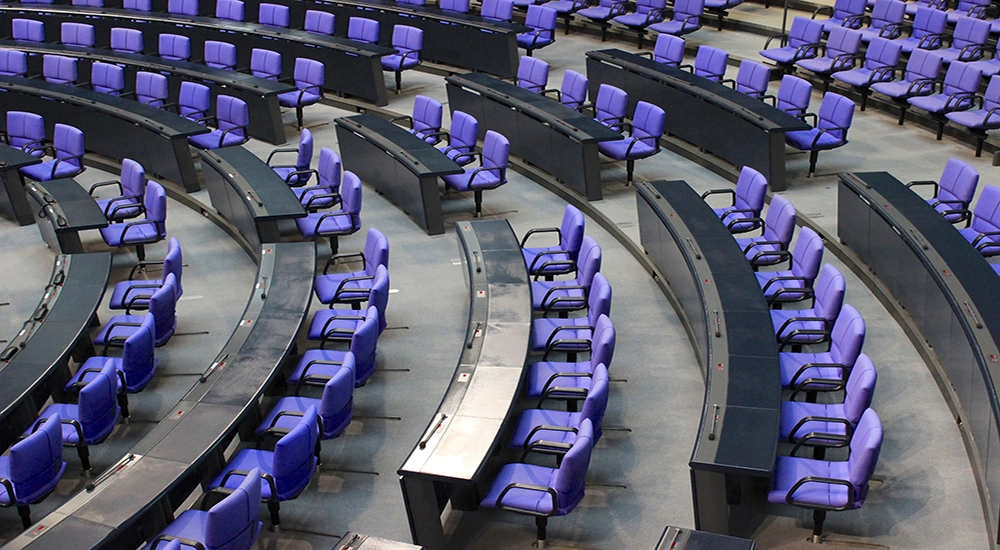
The amendment to the Energy Industry Act (EnWG) is about to be adopted – but the German Renewable Energy Federation (BEE) sees an urgent need for action, especially regarding grid connection procedures and the planned energy sharing.
In the context of the planned amendment to the Energy Industry Act (EnWG), the German Renewable Energy Federation (BEE) demanded extensive improvements during a public hearing in the Bundestag. The associations see a significant need for improvement both in the procedures surrounding the grid connection of renewable energy plants and in the regulations for the planned energy sharing scheme.
The focus is particularly on simplifying and accelerating grid connection procedures. Project developers repeatedly complain that grid operators have differing technical requirements and fail to transparently publish necessary information such as available capacities.
"Grid connection procedures must be accelerated. A key lever for this is the standardization of equipment and hardware requirements for grid operators," says Wolfram Axthelm, Managing Director of the BEE (German Renewable Energy Federation).
The German Renewable Energy Federation (BEE) is therefore calling for standardized specifications for the technical design of grid connections, digitized communication interfaces between operators and grid companies, and a nationwide platform for available grid capacities. This would allow permitting processes to be implemented not only faster, but also more predictably and cost-effectively.
Implementing these demands could lead to a significant reduction in workload and thus act as an effective accelerator in the process leading up to grid connection. It is precisely at this crucial point that most stakeholders criticize current practices and see a great need for improvement.
The second key topic is so-called energy sharing, which is to be enshrined in law for the first time in the new Section 42c of the German Energy Industry Act (EnWG). The idea is that citizens, housing associations, and energy cooperatives should be able to jointly generate and consume electricity from renewable sources. However, the draft legislation includes strict spatial limitations and bureaucratic hurdles that could weaken its impact.
The German Renewable Energy Federation (BEE) emphasizes the opportunities offered by energy sharing as a tool for strengthening participation and public acceptance of the energy transition. The federation sees considerable potential, particularly in rural areas and apartment buildings – provided that the definition of shared consumption points is made more flexible.
In contrast, the German Association of Energy and Water Industries (BDEW) expresses significant concerns: Instead of enabling innovation, the federation fears an increase in bureaucracy, higher processing costs, and more complex procedures. Both positions clearly illustrate what the success of new participation models like energy sharing depends on. The decisive factor will be whether the legislator creates a legally sound and at the same time practical framework that opens up possibilities without the effort for all parties involved becoming excessive.
In addition to the technical and regulatory aspects, the German Renewable Energy Federation (BEE) also points to economic potential. The underlying principle is that faster grid connections and new participation models can not only contribute to the expansion of renewable energy capacity but also stimulate innovation and create investment security.
However, this requires close cooperation between the federal government, states, municipalities, and grid operators. A clear legal framework with binding deadlines, standardized procedures, and legal certainty for all parties involved is also essential.
Especially in connection with the planned energy sharing and the improved grid integration of decentralized energy systems, it becomes clear how crucial clear legal regulations are. Without reliable rules on data access, billing models, and responsibilities, the innovative potential of these new forms of participation risks remaining untapped.
The German Renewable Energy Federation (BEE) therefore demands that the amendment to the Energy Industry Act (EnWG) not only removes existing obstacles but also creates the foundation for fair market participation – particularly for citizen energy projects, cooperatives, and small energy suppliers. Only in this way can the energy transition be supported not only technologically but also socially.
The amendment to the Energy Industry Act (EnWG), in its current form, offers important impetus but falls short of industry expectations in crucial areas. Without targeted improvements, it could undermine key energy transition goals such as the accelerated expansion of photovoltaics, wind power, and storage. Policymakers are now called upon to create clear and practical guidelines in the final version of the law to ensure that the transformation of the energy system does not fail due to inadequate infrastructure.